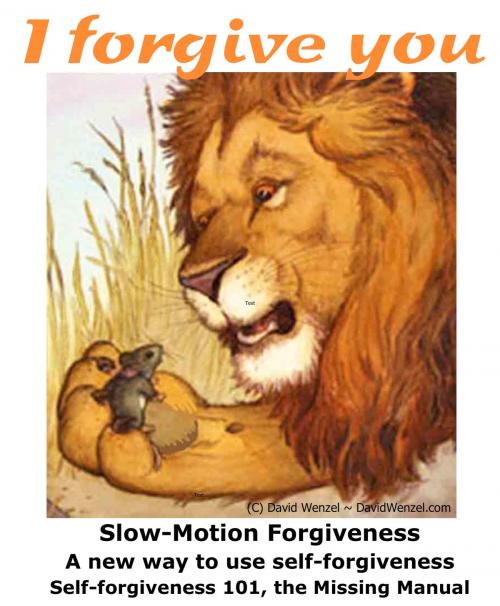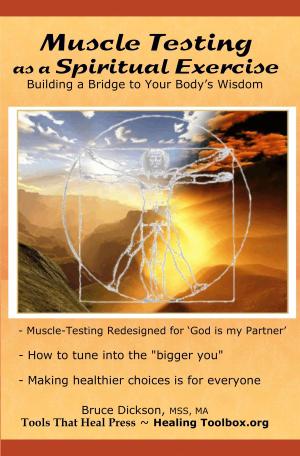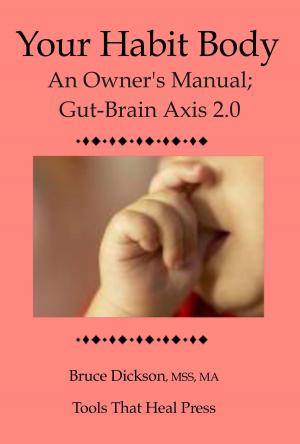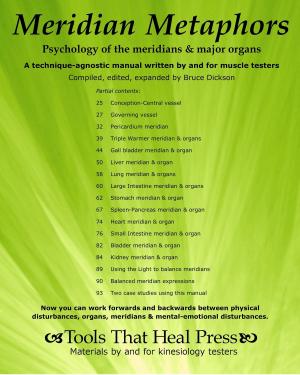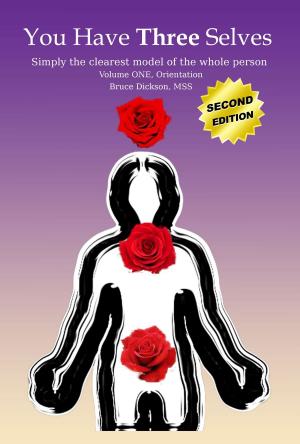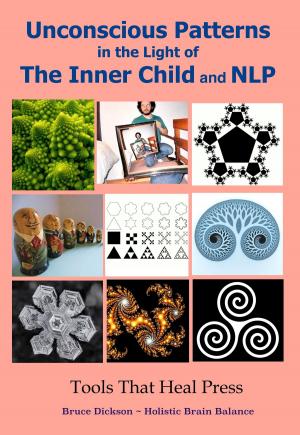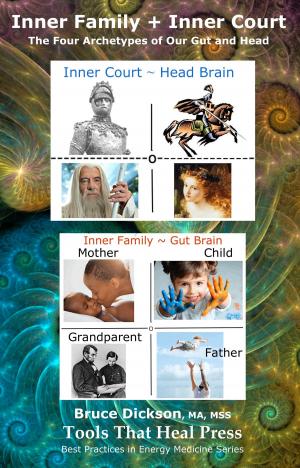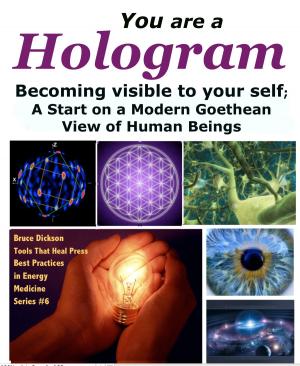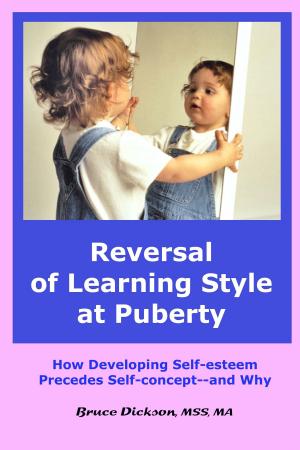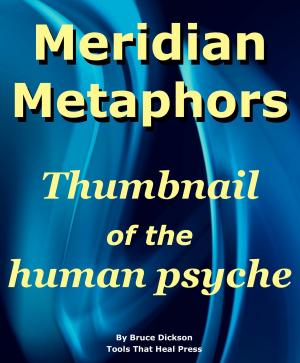Forgive from Your Soul Slow-Motion Self-Forgiveness(SM), the Missing Manual Forgiveness 101 How-to eBook
Nonfiction, Health & Well Being, Self Help, Self Improvement, Self-Esteem| Author: | Bruce Dickson | ISBN: | 9781310894527 |
| Publisher: | Bruce Dickson | Publication: | December 3, 2012 |
| Imprint: | Smashwords Edition | Language: | English |
| Author: | Bruce Dickson |
| ISBN: | 9781310894527 |
| Publisher: | Bruce Dickson |
| Publication: | December 3, 2012 |
| Imprint: | Smashwords Edition |
| Language: | English |
Readers already able to self-muscle-test or already working with a Healing buddy will get the most out of this method and this booklet.
Self-forgiveness is the forgotten super-hero of growth. Complete, how-to manual.
Slow-Motion Forgiveness converges self-testing, NLP, Habit Body and ecumenical spirituality into a sequenced method you can practice at home or support clients with.
Each of us balances between repeating habits and making more conscious choices. The indivisible smallest units in psychology are one habit and one choice.
Our life is built on these but not in a 50-50 ratio. Bruce Lipton says the ratio is 95% habits to 5% free choice.
All habits are learned thru repetition. Both good and bad habits are learned thru repetition. Our concerning issues and unwanted "issues" are all one or more habits. Taking a page from NLP, to delete a bad habit or an issue, if we delete each and every repetition it was learned by, we can delete the issue. Slow-Motion Forgiveness makes this a practical method. This is Practical Epigenetics.
Our Habit Body is run by our Habit Librarian who knows where all our habits are and how many repetitions it was learned by. For each bad habit or disturbing PTSD we wish to be rid of, compose a Forgiveness formula, using a template, set your intention to forgive and simply count off the repetitions as they delete. Old version of Microsoft Word displayed an animation when deleting files from a folder in computer memory, little pages coming out of a folder and dissolving into the air.
Slow-Motion Forgiveness converges NLP, Habit Body and ecumenical spirituality into a sequenced method you can practice at home or support clients with. Best Practices include psychic self-protection:
- Begin with your own prayer of protection, asking your own Higher Guidance in Soul and Above (Mystical Traveler, Christ, etc) to fill, surround, protect and guide you,
- End with a prayer to Soul and Above to remove any and all negativity released.
Field-tested with clients since 2001, SMF has yielded consistently excellent results. Anyone who can self-test, or who is willing to learn, can use SMF. No counseling training is required to facilitate this change method. Counseling training can only make you better at this.
In a SMF client situation, the lion's share of responsibility falls to the client, not on the facilitator. Facilitators remain useful but no longer essential.
If you practice Slow-Motion Forgiveness, you'll gain confidence in composing your own Forgiveness Formulas” and do your own forgiveness experiments Be aware of what moves and shifts. With practice self-sensitivity increases.
If you know of a more common, effective, tool for self-healing than self-forgiveness, please tell me.
Author Bruce Dickson's most advanced work is in Holistic Brain Balance. He's been supporting clients professionally since 2001.
Readers already able to self-muscle-test or already working with a Healing buddy will get the most out of this method and this booklet.
Self-forgiveness is the forgotten super-hero of growth. Complete, how-to manual.
Slow-Motion Forgiveness converges self-testing, NLP, Habit Body and ecumenical spirituality into a sequenced method you can practice at home or support clients with.
Each of us balances between repeating habits and making more conscious choices. The indivisible smallest units in psychology are one habit and one choice.
Our life is built on these but not in a 50-50 ratio. Bruce Lipton says the ratio is 95% habits to 5% free choice.
All habits are learned thru repetition. Both good and bad habits are learned thru repetition. Our concerning issues and unwanted "issues" are all one or more habits. Taking a page from NLP, to delete a bad habit or an issue, if we delete each and every repetition it was learned by, we can delete the issue. Slow-Motion Forgiveness makes this a practical method. This is Practical Epigenetics.
Our Habit Body is run by our Habit Librarian who knows where all our habits are and how many repetitions it was learned by. For each bad habit or disturbing PTSD we wish to be rid of, compose a Forgiveness formula, using a template, set your intention to forgive and simply count off the repetitions as they delete. Old version of Microsoft Word displayed an animation when deleting files from a folder in computer memory, little pages coming out of a folder and dissolving into the air.
Slow-Motion Forgiveness converges NLP, Habit Body and ecumenical spirituality into a sequenced method you can practice at home or support clients with. Best Practices include psychic self-protection:
- Begin with your own prayer of protection, asking your own Higher Guidance in Soul and Above (Mystical Traveler, Christ, etc) to fill, surround, protect and guide you,
- End with a prayer to Soul and Above to remove any and all negativity released.
Field-tested with clients since 2001, SMF has yielded consistently excellent results. Anyone who can self-test, or who is willing to learn, can use SMF. No counseling training is required to facilitate this change method. Counseling training can only make you better at this.
In a SMF client situation, the lion's share of responsibility falls to the client, not on the facilitator. Facilitators remain useful but no longer essential.
If you practice Slow-Motion Forgiveness, you'll gain confidence in composing your own Forgiveness Formulas” and do your own forgiveness experiments Be aware of what moves and shifts. With practice self-sensitivity increases.
If you know of a more common, effective, tool for self-healing than self-forgiveness, please tell me.
Author Bruce Dickson's most advanced work is in Holistic Brain Balance. He's been supporting clients professionally since 2001.
